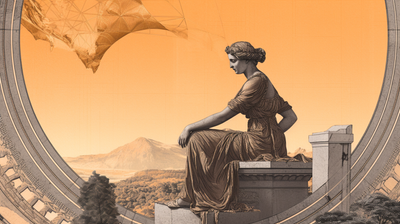The Philosophy of Technology: Examining the Impact on Human Existence
In our relentless pursuit of progress, humanity has birthed a tremendous force that permeates every facet of our existence: technology. From the wheel to the internet, we have constructed a formidable edifice of innovation, transforming the world and reshaping the human experience. However, in examining the philosophy of technology, we must shed the rose-tinted glasses and approach this subject with a critical eye. What are the true implications of our technological triumphs? Have we unwittingly trapped ourselves in a web of our own making, sacrificing profound aspects of our humanity for convenience and efficiency?
The Seduction of Efficiency:
Technology's seductive allure lies in its promise of efficiency and convenience. We have become accustomed to a world where information is readily available at our fingertips, instant gratification is the norm, and the pace of life has accelerated to a dizzying frenzy. But amidst this whirlwind, have we paused to reflect upon the price we pay for this efficiency?
In our quest for convenience, we have unwittingly surrendered our autonomy. We have become slaves to our devices, obediently following their prompts and demands. As a result, our attention spans have dwindled, and a constant barrage of notifications has infringed upon the once-sacred spaces of contemplation and introspection. As Socrates cautioned, "Beware the barrenness of a busy life."

Technological Determinism:
The prevailing notion that technology is an impartial force shaping our destiny beyond our control is a fallacy we must confront. It is we who design, develop, and deploy technology. We imbue it with our values, biases, and desires. Therefore, absolving ourselves of responsibility and claiming that technology determines our fate is a convenient cop-out.
Historically, we can observe how adopting certain technologies has shaped societies and altered the course of human history. From the printing press empowering the Reformation to the atomic bomb annihilating Hiroshima, technology is a powerful tool that can either emancipate or enslave. Therefore, it must recognize our agency in creating and applying technology and strive to align it with our ethical compass.

The Dystopian Shadow:
The unrelenting march of technology also casts a dystopian shadow upon our future. We find ourselves at the precipice of an age where artificial intelligence, robotics, and genetic engineering threaten to redefine what it means to be human. Yet, as we explore these uncharted territories, we must tread carefully, guarding against the dehumanization and commodification of our very essence.
A poignant cautionary tale lies in Aldous Huxley's Brave New World. In this prophetic work, he envisioned a society controlled by pleasure and a homogenized population stripped of individuality. As we venture into a world where algorithms dictate our choices and manipulate our desires, we risk a similar fate. Yet, the value of our humanity lies not in the efficiency of our existence but in the richness and diversity of our experiences.
The Erosion of Intimacy:
One casualty of our technological obsession is the erosion of genuine human connection. In the digital age, we are paradoxically more connected than ever, yet increasingly isolated. Social media platforms, hailed as connectors of people, have become breeding grounds for superficiality and curated facades. The virtual realm has supplanted authentic face-to-face interactions, leading to a shallowness in our relationships.
Marshall McLuhan stated, "We shape our tools, and after that, our tools shape us." We must reckon that our tools shape us into beings that crave validation through likes and shares rather than the profound intimacy of meaningful relationships. We must resist the allure of
technology's illusory promises and reclaim the depth of human connection vital to our existence.

Conclusion:
In our pursuit of progress, we have birthed a double-edged sword. Technology has undoubtedly propelled us to great heights but has also trapped us in its web. The philosophy of technology demands a critical examination of our choices, an interrogation of our values, and a recognition of our responsibility. We must resist the seductive allure of efficiency and convenience, embrace our agency in shaping technology, guard against dystopian futures, and reclaim the profound intimacy that defines our humanity. In doing so, we can navigate the complex interplay between technology and human existence, forging a path that preserves the essence of what it means to be human while harnessing the potential of innovation.

Plato Re-Imagined
This course offers 32 comprehensive lectures exploring most of Plato's dialogues. These lectures guide students toward a consilient understanding of the divine—a concept that harmonizes knowledge across disciplines and resonates with secular and religious leaders. As a bonus, Lecture #33 focuses on consilience, demonstrating how different fields of knowledge can converge to form a unified understanding.






